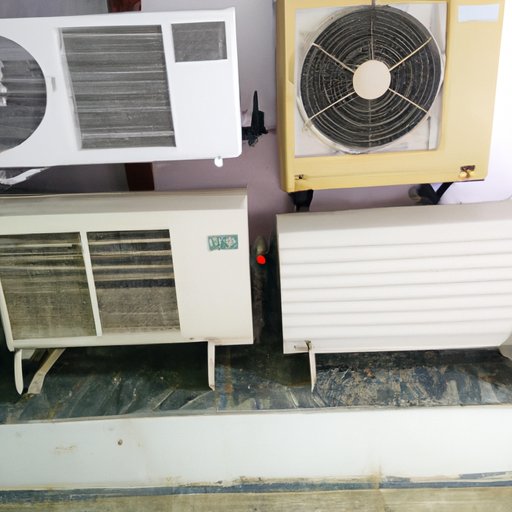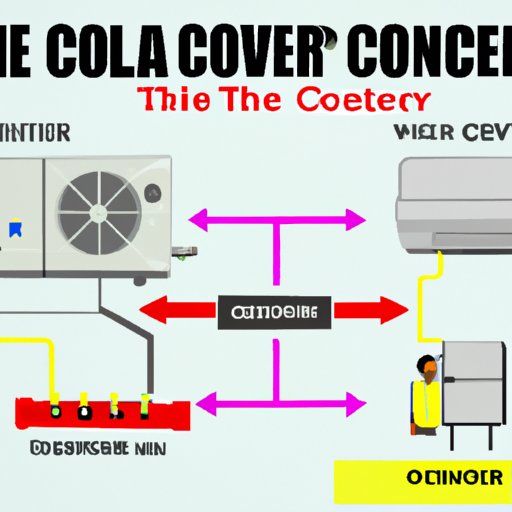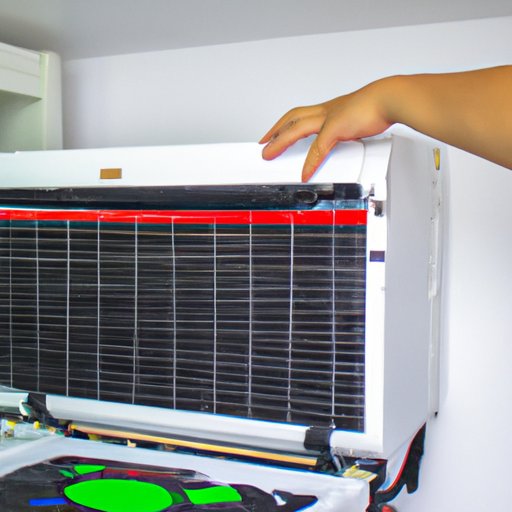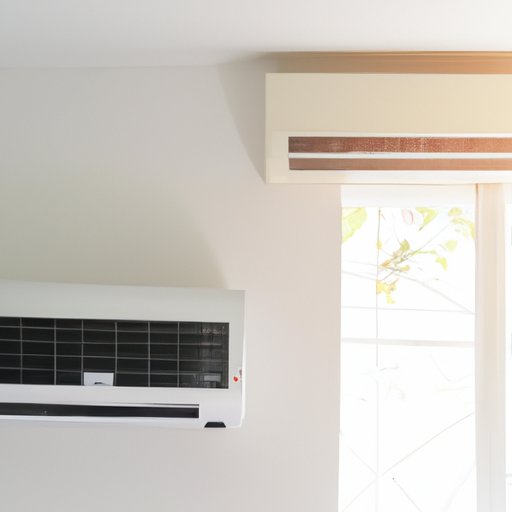Introduction
Air conditioning systems are essential for keeping homes and businesses comfortable during the hot summer months. With the growing popularity of inverter AC technology, people now have more options when it comes to cooling their space. In this article, we’ll explore what inverter AC technology is, the benefits of using it, and how it differs from conventional ACs. We’ll also provide a guide to understanding inverter AC technology and offer an overview of the pros and cons of investing in one. Finally, we’ll discuss the future of air conditioning and the advantages of inverter AC technology over traditional systems.
Exploring the Benefits of Inverter AC Technology
Inverter AC technology is becoming increasingly popular due to its energy efficiency, cost savings, and improved air quality. Here’s a closer look at the benefits of using inverter AC technology:
Cost Savings
Inverter AC technology can help reduce energy costs by up to 40 percent compared to traditional AC units. According to a study conducted by the University of California, Berkeley, “The use of variable-speed compressors in air conditioners…resulted in substantial savings in electricity consumption.”
Energy Efficiency
Inverter ACs are up to 25 percent more efficient than traditional ACs because they operate at variable speeds. This means that the compressor adjusts its speed based on the temperature setting and the amount of heat in the room, allowing for more precise temperature control and less energy waste.
Improved Air Quality
Inverter ACs also help improve air quality by filtering out dust and allergens in the air. The air filters in these units are designed to capture small particles and keep them from being recirculated in the home or office.

How Inverter ACs are Different from Conventional ACs
Inverter ACs are different from conventional ACs in several key ways. Here’s a look at some of the key differences:
Compressor Operation
Conventional ACs turn the compressor on and off in order to maintain the desired temperature, while inverter ACs use variable speed compressors that adjust their speed depending on the temperature setting and the amount of heat in the room.
Temperature Control
Inverter ACs provide more precise temperature control than conventional ACs, as they can adjust the speed of the compressor to maintain a more consistent temperature.
Airflow and Noise Levels
Inverter ACs produce less noise than traditional ACs because the compressor runs at a lower speed. They also provide better airflow and more evenly distributed cooling throughout the space.

A Guide to Understanding Inverter AC Technology
In order to get the most out of an inverter AC system, it’s important to understand how it works. Here’s a guide to understanding inverter AC technology:
Types of Inverters
There are two types of inverters commonly used in AC systems: single-phase and three-phase. Single-phase inverters are typically used in residential applications, while three-phase inverters are more suitable for commercial and industrial applications.
Key Components of an Inverter AC
An inverter AC system consists of several key components, including an inverter, a compressor, a condenser, an expansion valve, and an evaporator. The inverter is the main component, as it converts alternating current (AC) power into direct current (DC) power and regulates the speed of the compressor to maintain the desired temperature.
The Inverter Cycle
The inverter cycle is the process by which an inverter AC works. It begins with the compressor drawing in refrigerant gas and compressing it. The compressed gas then passes through the condenser, where it is cooled and converted into liquid form. The liquid then passes through the expansion valve, where it is transformed back into a gas and passed into the evaporator. The evaporator then absorbs heat from the air and the cycle is complete.
The Pros and Cons of Investing in an Inverter AC
When deciding whether or not to invest in an inverter AC system, it’s important to weigh the pros and cons. Here’s a look at some of the key considerations:
Pros
The main benefit of investing in an inverter AC system is energy efficiency. These systems can save up to 40 percent on energy costs compared to traditional ACs. They also provide more precise temperature control, better airflow, and improved air quality.
Cons
The main downside of investing in an inverter AC system is the cost. These systems tend to be more expensive than traditional ACs, so they may not be the best choice for people on a tight budget.

Installing an Inverter AC: What You Need to Know
If you’ve decided to invest in an inverter AC system, it’s important to make sure it’s installed correctly. Here are some tips for ensuring proper installation:
Choosing a Qualified Installer
It’s important to choose a qualified installer who has experience working with inverter AC systems. Make sure to ask for references and check that the installer is licensed and insured.
Proper Installation Steps
Once you’ve chosen an installer, make sure they follow all of the proper installation steps. This includes selecting the right size unit, installing the correct wiring and insulation, and properly sealing all of the ducts and vents.
The Future of Air Conditioning: Inverter AC Technology
Inverter AC technology is becoming increasingly popular due to its energy efficiency, cost savings, and improved air quality. As more people become aware of the benefits of these systems, the demand for them is likely to continue to grow. Here’s a look at some of the advantages of inverter AC technology over traditional ACs:
Growing Popularity
Inverter ACs are becoming more popular as people become aware of the benefits they offer. According to a survey conducted by Consumer Reports, “Nearly half of all respondents said they would consider buying an inverter AC system.”
Advantages Over Traditional ACs
Inverter ACs offer several advantages over traditional ACs, including energy efficiency, cost savings, improved air quality, and more precise temperature control. For these reasons, they are likely to continue to gain in popularity in the coming years.
Conclusion
Inverter AC technology offers many benefits, including cost savings, energy efficiency, and improved air quality. When choosing an inverter AC system, it’s important to understand how it works and the pros and cons of investing in one. With the growing popularity of inverter ACs, they are likely to become the preferred choice for air conditioning in the near future.
(Note: Is this article not meeting your expectations? Do you have knowledge or insights to share? Unlock new opportunities and expand your reach by joining our authors team. Click Registration to join us and share your expertise with our readers.)
